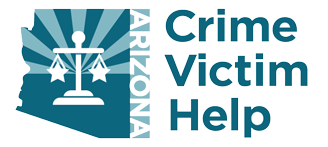Protecting Your Money and Identity
Financial Fraud and Identity Theft
Each year, more than 50,000 Arizonans are victims of some type of financial fraud or scam. Some of these crimes can result in serious money problems for the victims. Not only do these crimes result in loss of money and financial security - victims may also feel betrayed or taken advantage of, especially if they know the offender.
What is Financial Fraud?
Financial fraud happens when someone tricks you to take your money or property, or they get you to pay for something that you never receive. These types of frauds and scams can happen in person, over the internet, by telephone or by mail. Some common examples of financial fraud include:
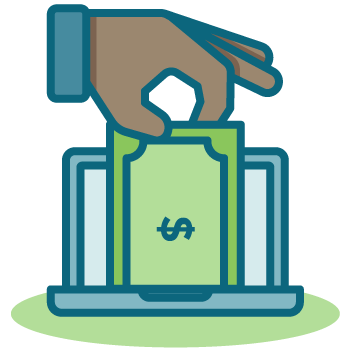
Banking Scams
Scammers try to access your bank account, often by pretending to be your bank and asking you for your account number and information.
Telephone Scams
Scammers make false promises to get you to buy products, invest your money, or get free products. Some scammers may threaten you with jail or a lawsuit if you do not pay them.
Charity Scams
Scammers make up a fake charity to collect donations, often after some type of tragedy or disaster.
Lottery or Prize Scams
Scammers say you have won money or prizes, but you must pay a processing fee to collect them.
Investment Scams
Scammers convince you that you will make money if you invest in their company or products, but the opportunities are not real, or you will never get your money’s worth.
How do I report financial fraud?
If you have been the victim of a scam or some type of financial fraud, it can be important to report it to the proper authorities right away.

Notify your bank or credit card company of the fraud or scam.
If your complaint is with a contractor or for home repairs or services, report the complaint about a contractor to the Arizona Registrar of Contractors.
If your complaint is with a contractor or for home repairs or services, report the complaint about a contractor to the Arizona Registrar of Contractors.
If you made a purchase and never received your items or services, make a written complaint to the company.
Fill out a consumer complaint form online with the Arizona Attorney General’s Office and the Better Business Bureau
Fill out a consumer complaint form online with the Arizona Attorney General’s Office and the Better Business Bureau
After someone scams you of your money, it can be difficult to know what to believe or who to trust.
Here are some practices to help protect your finances going forward:
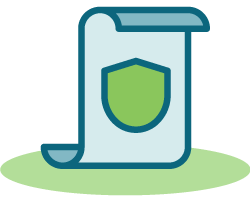
Get any agreements, contracts, or promises in writing.
Know that a written agreement is binding, and usually there is no right to cancel.
Review or have someone you trust review your bills. Dispute any errors in writing, and include your name, address, account number, and a description of the error.
Know that a written agreement is binding, and usually there is no right to cancel.
Review or have someone you trust review your bills. Dispute any errors in writing, and include your name, address, account number, and a description of the error.
When renting, verify you are dealing with the actual owner or authorized manager of the property.
Beware of home solicitations, where a salesperson comes to your home. These often include a choice to cancel a purchase in writing only, in the first 3 days.
Avoid “work at home” offers that require buying merchandise or equipment.
Beware of home solicitations, where a salesperson comes to your home. These often include a choice to cancel a purchase in writing only, in the first 3 days.
Avoid “work at home” offers that require buying merchandise or equipment.
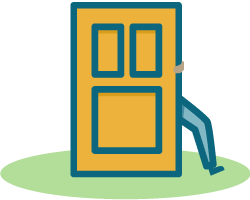

Be careful about car repairs. Get a written work order and estimate.
Use caution when buying a used car. In Arizona, a vehicle must operate for 15 days (about 2 weeks) or 500 miles, whichever happens first. Get any repair promises in writing. learn more
Avoid “title” loans with high interest rates that often lead to losing a vehicle.
Use caution when buying a used car. In Arizona, a vehicle must operate for 15 days (about 2 weeks) or 500 miles, whichever happens first. Get any repair promises in writing. learn more
Avoid “title” loans with high interest rates that often lead to losing a vehicle.
Check if contractors are licensed and research their history for complaints. learn more
Be careful around claims that a company will “repair” your credit. learn more
Be aware that some scammers target senior citizens. learn more
Be careful around claims that a company will “repair” your credit. learn more
Be aware that some scammers target senior citizens. learn more

What is Identity Theft?
Identity theft is when someone uses your personal or financial information without your permission. An identity thief might use your name, address, social security card, bank account numbers, or medical insurance numbers—or those of your minor children-- to buy things, apply for benefits, file taxes, or pretend to be you.
You may be a victim of identity theft if:
-
There are withdrawals from your account that you cannot explain
-
You do not get your bills or other mail
-
There are charges for goods or services that you did not buy
-
You receive statements for credit cards that you did not open
-
There are errors or unfamiliar accounts on your credit report
-
Your medical providers bill you for services you did not use
-
Debt collectors call you about debts that are not yours
What should I do if my identity is stolen?
At the first sign that your identity has been stolen:
Call the fraud department of your credit card company or bank and ask them to freeze your accounts.
Change all account passwords and PINs (personal identification numbers).
Change all account passwords and PINs (personal identification numbers).
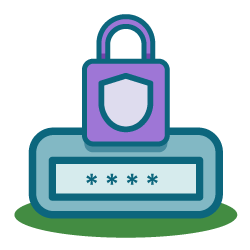

Report the identity theft to the Federal Trade Commission (FTC). After you report the identity theft, the FTC will give you an Identity Theft Report and a recovery plan to follow to fix the problems caused by the identity theft. Report the identity theft to your local police department and request a copy of the police report.
After taking steps to report identity theft, you may want to:
-
Request written proof from those claiming you owe a debt
-
Send “cease communications” letters to stop debt collectors from contacting you. View sample letters on FTC.gov
-
Defend yourself against debt collection cases filed against you in court
-
Seek legal help. Visit AZLawHelp to apply for free or reduced cost legal help or go to AZCourtHelp to find resources for representing yourself in court.
After an identity theft crime, it can be overwhelming to know where to start.
These suggestions might help protect your identity and finances going forward:
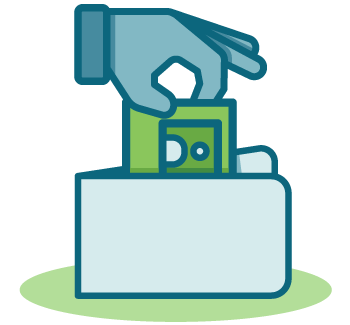
Store all personal information in a safe place.
Be careful with your wallet, credit cards, Social Security Number, account numbers, passwords, and PIN (Personal Identification Numbers) numbers.
Routinely and carefully read credit card and bank statements, and contact your bank about any charges you did not make.
Be careful with your wallet, credit cards, Social Security Number, account numbers, passwords, and PIN (Personal Identification Numbers) numbers.
Routinely and carefully read credit card and bank statements, and contact your bank about any charges you did not make.
Do not respond to unknown requests for personal information by phone, mail, or online.
Shred all receipts, credit card offers, account statements, expired credit cards, and other documents having your personal information before you throw them away.
Collect and open your mail promptly.
Safeguard your personal information online, on your computer, and on your phone.
Collect and open your mail promptly.
Safeguard your personal information online, on your computer, and on your phone.
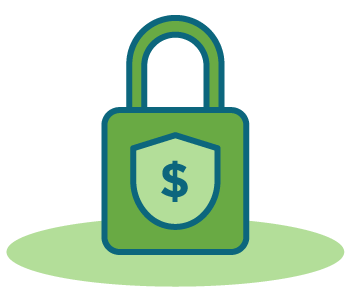
Request and review your credit report at least once a year.
